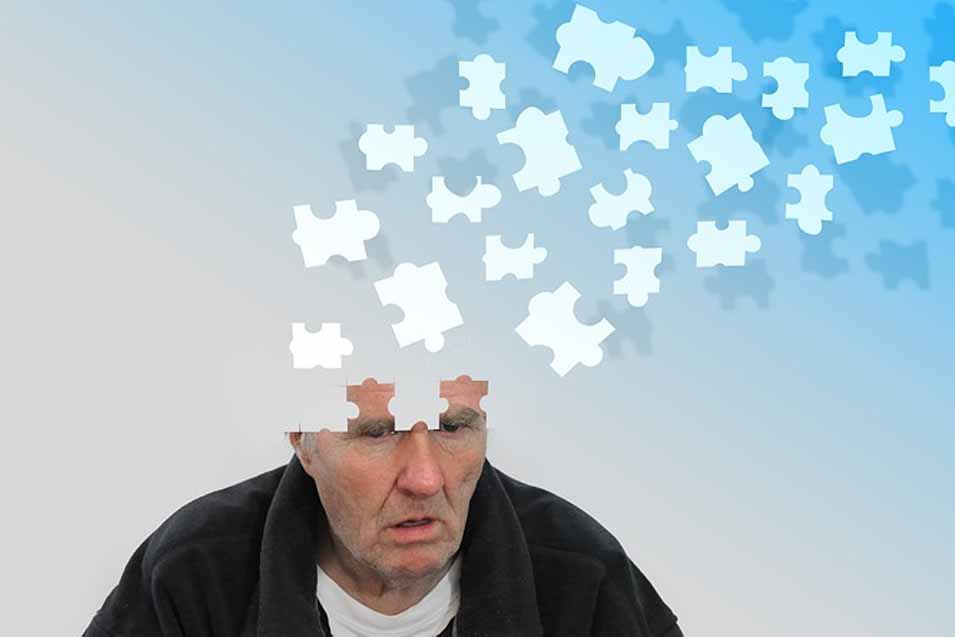Dementia is a progressive brain disorder. It affects memory, cognitive abilities, and overall behavior. Often, it impacts older individuals.
Various conditions cause dementia. For example, Alzheimer’s disease is the most prevalent form. Dementia can result from strokes or traumatic brain injuries as well.
Symptoms include memory loss, confusion, and disorientation. With time, it affects everyday tasks and eventually disrupts daily life routines.
Early diagnosis is beneficial for managing symptoms effectively. Although there’s no cure yet, research continues to find new treatments and strategies to delay the onset of this debilitating condition.
Now, let’s take a look at some of the most common causes of dementia, followed by potential ways of reducing your chances of getting the condition.
Age-related Factors
As we grow older, our brains undergo changes that may raise the risk of developing dementia. In fact, age is the most significant factor influencing dementia onset.
Despite this correlation, it’s essential to remember that dementia is not a normal part of aging and can be managed with timely intervention.
Genetics and Family History
Our genes play a role in determining our likelihood of developing dementia. For example, if your family has a history of Alzheimer’s disease – the most common type of dementia – your chances are higher than those without such a history.
Nevertheless, having relatives with dementia doesn’t guarantee you’ll develop it as well.
Brain Injury or Stroke
Brain injuries resulting from accidents or medical conditions like strokes can cause vascular dementia. This type occurs when blood flow to the brain becomes obstructed or ceases altogether.
Infections and Immune System Disorders Certain infections and immune system disorders – such as Multiple Sclerosis, HIV, and Lyme disease – can lead to dementia or dementia-like symptoms.
Lifestyle Choices
Unhealthy habits like smoking, excessive alcohol consumption, lack of exercise, and an unbalanced diet can contribute to cognitive decline.
Metabolic Conditions
Some metabolic conditions – such as diabetes, high blood pressure, or cholesterol – increase the likelihood of dementia development.
Seeing a Doctor for Dementia
As you’ve seen, numerous factors play roles in dementia development. Being aware of these causes is vital for early detection and management.
It’s crucial to consult a doctor for dementia if you notice persistent and worsening memory issues or other cognitive concerns.
How to Reduce the Chances of Getting Dementia
While there are no guarantees for avoiding the onset of dementia, there are ways in which you can reduce the chances of developing the condition and stay cognitively alert as you grow older.
Maintain a Healthy Lifestyle
Firstly, it’s essential to maintain a healthy lifestyle. Eating well, staying physically active, and keeping your mind engaged can all help in the prevention of dementia.
Make sure to consume a balanced diet rich in fruits, vegetables, whole grains, and lean proteins. Additionally, don’t forget to limit processed foods and sugary treats.
Stay Physically Active
Regular physical activity is crucial for overall health as well as cognitive function. Aim for at least 150 minutes of moderate exercise per week. This could include activities like walking, swimming, or dancing.
Exercise not only improves cardiovascular health but also promotes brain cell growth and communication.
Stay Mentally Active
Keeping your brain stimulated is another key aspect of avoiding dementia. Engage in intellectually stimulating activities such as reading books, solving puzzles, or learning a new language.
By continually challenging your brain, you’ll be reinforcing neural connections and potentially creating new ones.
Get Plenty of Sleep
Getting adequate sleep is vital for cognitive health. Strive to create a consistent sleep schedule by going to bed and waking up at similar times each day.
Poor sleep or sleep disorders like sleep apnea may increase the risk of developing memory problems and other cognitive issues.
Maintain an Active Social Life
Lastly, having an active social life can also play a role in reducing dementia risks. Build strong relationships with friends and family members by regularly participating in social events or group activities.






